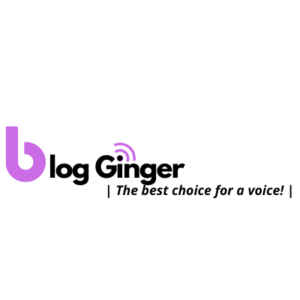QuickBooks vs Xero 2024: The Ultimate Battle for Small Business Bookkeeping Supremacy
Choosing the right cloud accounting software can make or break your small business’s financial management. With both QuickBooks and Xero dominating the market in 2024, the decision has never been more critical—or more challenging. QuickBooks and Xero are popular accounting software platforms for small businesses. We’ll compare their essential accounting features, pricing, integrations and more to help you choose the right accounting software for your needs.
The 2024 Pricing Landscape: What Your Money Gets You
When it comes to pricing, both platforms have evolved significantly in 2024. Depending on the plan you select, QuickBooks Online’s monthly prices run from $30 for the Simple Start plan to $200 for the Advanced plan. Beginning August 1, 2024, prices will run from $35 to $235 per month. Meanwhile, Xero offers three pricing tiers, ranging from $9 per month to $60 per month.
The key difference lies in user access. Xero is more affordable than QuickBooks Online, always includes unlimited users, and offers inventory management and fixed asset accounting in all its plans. This unlimited user access makes Xero particularly attractive for growing teams that need collaborative financial management.
Feature Comparison: Where Each Platform Shines
Xero is known for having a simple, sleek layout. This may feel more approachable to business owners who are new to accounting basics or don’t have the background knowledge to leverage QuickBooks Online’s full functionality. You can do a lot with QuickBooks Online, but all the options may feel like information overload starting out.
For inventory management, there’s a clear distinction. If you can’t justify the $99-per-month QuickBooks Online Plus plan, you won’t get inventory management. QuickBooks Online’s lower-tier plans don’t come with this feature. This could be a real shortcoming for small online retail businesses, for instance, that need to track their products and the materials used to make them. All of Xero’s plans come with basic inventory management, so business owners can know what’s in stock and which products are selling.
The Professional Preference: What Accountants Choose
Interestingly, many accountants and bookkeepers lean towards Xero. This preference stems from its collaborative features and clean interface. Both Xero and QuickBooks are well-loved by accountants, and their preference might come down to location. QuickBooks is the market leader in the US, while Xero is a favorite for Europe and New Zealand.
This professional preference matters more than you might think. If you’re working with a bookkeeper bouldin creek area or elsewhere, their familiarity with your chosen platform can significantly impact the efficiency and accuracy of your financial management.
Mobile Functionality and User Experience
Xero is a newer product designed with an intuitive and modern user interface · Xero has more mobile apps and features than QuickBooks Online · Xero number of users is unlimited, but transaction limits apply in lower pricing plans However, QuickBooks counters with robust mobile capabilities of its own, particularly in expense tracking and receipt capture.
Integration Capabilities: Building Your Business Ecosystem
With our open platform and over 1000 connecting apps, you can customize Xero to suit your business needs. QuickBooks also offers extensive integrations, though QuickBooks boasts a vast ecosystem of integrations, covering everything from payroll to inventory management. Its long-standing market presence has allowed it to build partnerships with a wide range of software providers. Xero, while having fewer integrations overall, focuses on quality over quantity. Its add-ons are often praised for their seamless integration and user-friendly nature.
Customer Support: Getting Help When You Need It
QuickBooks Online stands out with better customer support and more advanced features, but Xero is less expensive. Xero provides free online support 24/7. Other resources include guides, online articles, and courses. However, QuickBooks offers more comprehensive support options, including phone support, which many business owners prefer for urgent issues.
Making the Right Choice for Your Business
Both QuickBooks and Xero are solid choices for small business accounting. QuickBooks offers depth and customization, while Xero brings user-friendliness and collaboration to the table. Your choice depends on your specific needs, budget, and how you like to work. Remember, the best accounting software is the one you’ll actually use consistently.
For businesses in Travis County, Texas, and surrounding areas, professional bookkeeping services like Bokapsys understand the local business landscape and can help implement either platform effectively. Bokapsys delivers tailored bookkeeping services across Travis County, TX, with a focus on clarity, simplicity, and long-term financial health. Whether you’re a startup or established business, our local bookkeepers are here to support your success.
The Verdict: Which Platform Wins in 2024?
The choice between QuickBooks and Xero ultimately depends on your specific business needs. Choose Xero if you prioritize affordability, unlimited users, and a clean interface. Xero is a good fit for US-based small businesses that need accounting tools, basic inventory management and tracking tools, low costs, and unlimited user access. Companies that want to manage finances, control cash flow, and collaborate online with accountants or bookkeepers, without worrying about per-user fees will find Xero ideal.
Choose QuickBooks if you need advanced features, comprehensive customer support, and don’t mind paying more for additional functionality. QuickBooks combines an intuitive interface with powerful features, making it a go-to for small businesses that need detailed reporting, advanced inventory management tools, and access to bookkeeping support.
Regardless of which platform you choose, remember that successful bookkeeping isn’t just about the software—it’s about consistent, accurate financial management that supports your business growth and decision-making.
